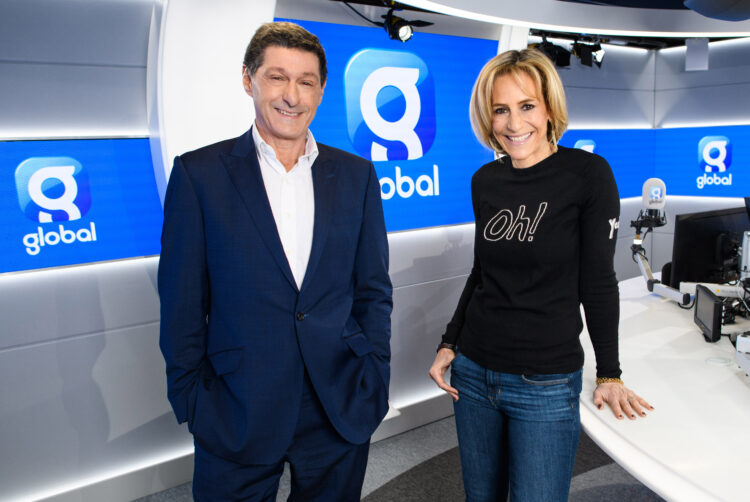The BBC’s Brain Drain and Tim Davie’s quest for ‘impartiality’

Opinion
Does DG Tim Davie’s BBC mistake ‘balance’ for truth? And what do recent high-profile departures say about the Corporation’s journalistic principles?
“But while we do many things right, I do hear questions about whether due impartiality is deliverable, even desirable, in these more polarised, divergent times. Our research shows that too many perceive us to be shaped by a particular perspective.
“We urgently need to champion and recommit to impartiality. If you work here, nothing should be more exciting than exploring different views, seeking evidence with curiosity, and creatively presenting testimony. Making use of our own experiences but not driven by our personal agendas. I wonder if some people worry that impartiality could be a little dull.
“We need to explore new ways of delivering impartiality.”
These highfalutin words from Tim Davie, delivered in his introductory speech as BBC director-general, display a fundamental misunderstanding of the notion of objective truth.
Under Davie’s regime we have seen the BBC devote airtime to the likes of Alan Dershowitz, Nigel Farage, Ben Shapiro, anti-vaxxers (Question Time) and others in a doomed quest for ‘impartiality’.
The DG seems to believe that there is an ideal difference-splitting median point between facts and untruths which constitutes fairness.
What else should we expect from a former PepsiCo salesman? A fellow with no relevant programme-making or news-gathering experience, who is now the putative editor-in-chief for the UK’s leading cultural institution?
It is not as though the DG balances this lack of depth with a ‘Renaissance Man’-style background, boasting a varied ‘hinterland’ of artistic/edifying interests a la the late Denis Healey – unless you count his hobby of ‘ultra-running’.
A life bound by the narrow confines of public school, the Tory Party and the marketing industry, could hamper Davie’s quest to gain a greater diversity of views in the Corporation.
He’s hardly likely to get a breadth of under-represented opinion from chatting to the likes of BBC Chairman Richard Sharp or Board member Sir Robbie Gibb, is he?
For some, the vacuity of Davie’s former trade as a marketing ‘guru’ can be summed up in his own words when he launched the new blue Pepsi can:
“This is not just a change in packaging. It is a change in attitude. Pepsi and Pepsi drinkers will be seen to do things differently.”
Even though the DG had been at the BBC since 2005 (PepsiCo and a brief traineeship at Proctor & Gamble prior to that), his boosters in the trade press and marketing community hailed Davie as transformative figure, citing his passion for “content” and his ability to bring a “big picture appreciation”.
Transformative he may be, but not in the way Davie’s followers thought. The Jimmy Savile investigators for Panorama, journalists Liz MacKean and Meirion Jones, were unimpressed when they met Davie during his stint as acting DG.
Jones told The Guardian: “We were both half-expecting that he might say: ‘We’ve got new hands on the tiller, it’s all going to change. Congratulations for going after that really important story. And – I’m sorry.’ But we got the opposite of that. It was new face, same suit.”
Recent weeks have seen an exodus of journalistic talent and news/current affairs management from the broadcasters, most recently Newsnight presenter Emily Maitlis.
A few of these departures may be due to budgetary reasons, and for onscreen talent, the crackdown on lucrative corporate side-gigs.
 Stephen Arnell
Stephen ArnellBut the main reason for the exodus appears to be the enforcement of Davie’s ‘no-bias’ rules, meaning that falsehoods are frequently left unchallenged and lying bunco artists of various stripes given room to spout their ‘Fake News.’
Whether fear of the Conservative government, or the DG’s natural inclination, prompted the ongoing caponisation of the BBC is anyone’s guess.
The effects of the decline in journalistic principles are already evident.
Witness the recent cock-up over regional documentary series We Are England, where two episodes were pulled – many citing poor editorial standards and lack of experienced oversight.
And, of course, January’s BBC World News interview with former Jeffrey Epstein lawyer Alan Dershowitz, where, per his introduction as a “constitutional lawyer” he proceeded to slate Virginia Giuffre’s claims against both Prince Andrew and himself.
One can only hope the damage inflicted by Davie’s regime is temporary; otherwise, Culture Secretary/former gameshow contestant Nadine Dorries might as well just crack on and privatise Auntie.
Stephen Arnell began his career at the BBC, moving to ITV where he launched and managed digital channels. He continues to consult for streamers and broadcasters on editorial strategy. He currently writes for The Spectator, Independent, and The Guardian on film, TV and cultural issues. He is also a writer/producer (including Bob Fosse: It’s Showtime for Sky Arts) and has just completed his first novel.
Big Picture: The Media Leader‘s weekly bulletin with thought leadership about the media industry’s big issues, with industry news and analysis by our editorial team.
Sign up for free to ensure you stay up to date every Wednesday.
Main image: Jon Sopel & Emily Maitlis, who last week announced they were leaving the BBC to join Global as presenters on LBC and a podcast (Picture supplied by Global)




